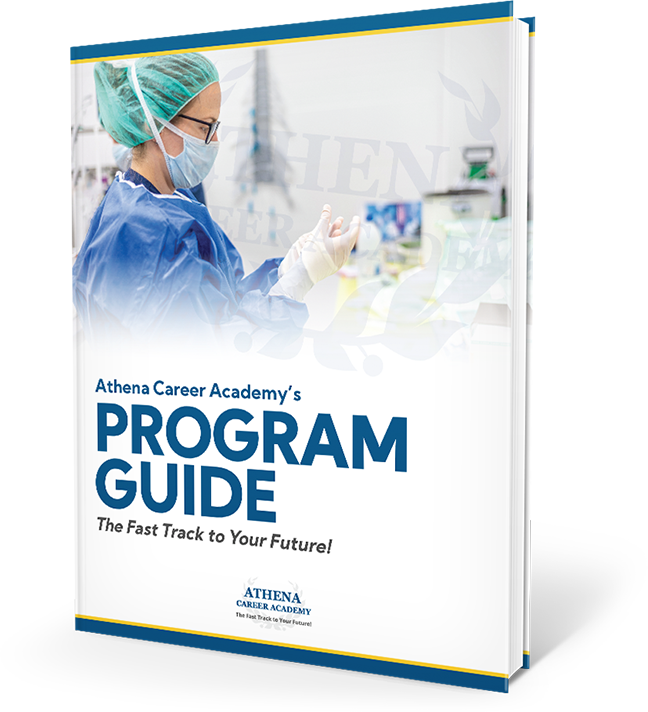Can You Specialize as a Medical Assistant?
Posted On Nov 28, 2023
When deciding on a career to pursue in the medical field, many people consider becoming a medical assistant. This profession is appealing for various reasons: it offers stability, competitive wages, and a high level of job satisfaction.
However, some may wonder if this career path allows for specialization. After all, some people may want to focus on a specific area of medicine rather than performing general administrative and clinical duties. The following information will provide insight into the potential for specialization as a medical assistant and the steps you’ll take to achieve it.
What Are The Responsibilities of a Medical Assistant?
Before discussing the various specialties available for medical assistants, it's important to first understand their general responsibilities. Medical assistants are a vital part of any healthcare team as they work alongside physicians and other healthcare professionals to provide patient care. Some of their main duties include:
- Taking patient histories and recording vital signs.
- Assisting with patient examinations and procedures.
- Collecting and preparing laboratory specimens.
- Administering medications and injections as directed by a physician.
- Scheduling appointments and managing patient records.
- Providing patient education and answering questions about medications or procedures.
- Handling insurance and billing tasks.
What Can a Medical Assistant Specialize in?
While medical assistants are trained to perform various tasks, they also have the opportunity to specialize in a specific area of medicine. This allows them to develop advanced skills and knowledge in a particular field, making them an even more valuable asset to healthcare teams. Some common specialties for medical assistants include:
Allergies and Immunology
Medical assistants who specialize in allergies and immunology work closely with patients who have allergies, asthma, or immune system disorders. They may assist with allergy testing, administer allergy shots, and educating patients on managing their conditions. Additionally, they may also assist with testing and treatments for patients with immunodeficiency disorders. Allergists' offices, immunology clinics, and hospitals often employ these specialized medical assistants.
Cardiology
In a cardiology specialty, medical assistants work alongside cardiologists to help treat and prevent heart disease. They may conduct cardiac stress tests, perform EKGs, and educate patients on lifestyle changes to improve their heart health. They may also assist with managing medical equipment used to diagnose and treat heart conditions. Cardiology offices, hospitals, and specialized heart centers employ medical assistants in this field.
Dermatology
Medical dermatology assistants work with patients with skin conditions, such as acne, psoriasis, and eczema. In this specialty, they may perform skin exams, assist with biopsies and other procedures, and educate patients on skincare. They may also assist with cosmetic procedures such as Botox or laser treatments. Dermatology offices, medical spas, and hospitals employ these specialized medical assistants.
Obstetrics and Gynecology
In this specialty, medical assistants work with OB/GYNs to provide care for women throughout pregnancy and childbirth. They may help with prenatal exams, perform ultrasounds, and assist with deliveries. Additionally, they may provide education on family planning and reproductive health. OB/GYN offices, hospitals, and women's health clinics employ medical assistants in this field.
Ophthalmology
Medical assistants specializing in ophthalmology work with eye doctors to provide care for patients with vision problems or eye diseases. They may assist with vision tests, measure, and fit contacts or glasses, and educate patients on proper eye care. They may also assist with eye surgeries and manage equipment used in these procedures. Ophthalmology offices, hospitals, and vision centers employ medical assistants in this field.
Endocrinology
Endocrinology medical assistants work with endocrinologists to care for patients with hormonal imbalances. They may assist with diagnostic testing, administer hormone therapy, and educate patients on managing their conditions. They may also assist with diabetes management and insulin administration. Endocrinology offices, hospitals, and specialized clinics employ these specialized medical assistants.
Neurology
In a neurology specialty, medical assistants work with neurologists to care for patients with brain and nervous system disorders. They may assist with neurological exams, perform nerve conduction tests, and educate patients on managing their conditions. They may also assist with specialized procedures, such as electromyography or electroencephalography. Neurology offices, hospitals, and neurology centers employ medical assistants in this field.
Oncology
Medical assistants specializing in oncology work with cancer patients and their families to provide care and support during treatments. They may assist with administering chemotherapy or radiation, collecting lab specimens, and educating patients on managing side effects. They may also assist with clinical trials and research studies. Oncology clinics, hospitals, and specialized cancer centers employ these medical assistants.
How Can a Medical Assistant Pursue a Specialty?
If you're interested in specializing as a medical assistant, there are a few steps you can take to pursue your desired field:
- Gain experience in your current role: Before specializing, it's important to have a strong foundation in general medical assisting skills. Take advantage of opportunities at your current job to learn as much as you can.
- Research different specialties: Learn more about the responsibilities and requirements for each specialty to determine which one interests you the most.
- Pursue additional education and training: Some specialties may require additional courses or certifications, so be sure to research and complete any necessary requirements.
- Consider job opportunities: Look for job openings in your desired specialty and actively apply for them.
- Network with professionals in your chosen field: Make connections with other medical assistants working in your desired specialty to gain insights, advice, and potential job opportunities.
Become a Medical Assistant
Before becoming a specialized medical assistant, you'll want to become a certified medical assistant. This typically involves completing a post-secondary education program, either through a community college or vocational school.
Athena Career Academy offers a comprehensive clinical medical assistant program that consists of 7 1/2 months of in-classroom learning and clinical experience along with an additional 6-week externship. Upon completion, students will be eligible to sit for the National Certification Exam. DOes this sound like a great career path for you? Contact us at Athena Career Academy today to learn more about our program and get details on how to enroll.
Recent Posts
- How Accessibility to Faculty Enhances ECE Degree Program
- Early Childhood Education Courses Lead to Great Teaching Careers
- Insights for Effective Preschool Teaching
- Online vs. In-Person Medical Assistant Training: Which Is Right for You?
- Preschool Teachers Provide Hands-On Learning for Future Innovators
Categories
- Flexible Class Schedule
- Early Childhood Education
- Clinical Medical Assistant
- Medical Assistant
- Accredited
- Medical Assistant Program Toledo, OH.
- MA Program
- ECE
- preschool teacher
- CMA
- Administrative Medical Assistant
- Practical Nursing
- Nursing School
- Nursing
- Early Childhood Education Degree
- LPN to RN
- Certified Medical Assistant
- Early Childhood Educator
- Become a Teacher
- Nursing Career
- RN
- Childcare Teacher
- Nursing School Toledo
- Practical Nurses
- Childcare Director
- Nursing Education
- Registered Nurse
- LPN
- Toledo Ohio Nursing School
- Teaching Degree
- Become a Nurse in 12 Months
- Nursing Career Opportunities
- Nursing School Preparation
- Practical Nursing Jobs
- Medical Coding and Billing
- DayCare Teacher
- Nursing Salaries
- Nursing School Costs
- PN to RN
- Career Training
- Nursing School Tuition
- Nursing School Financial Aid
- Phlebotomist Technician
- Practical Nurse Salaries
- EKG Technician
- nurse burnout
- #nursesunite
- Insider
- Phlebotomy Technician Salary
- Uncategorized
- resume
Contact us
For News, Resources, and Conversations:
Get your FREE 2022 Athena Career Academy Program Guide
The best way to get to know Athena Career Academy is to see what we offer. Download our program guide to learn more. Take the fast track to your future today!
An exciting career can be yours in just one year!
Discover how Athena Career Academy can help you reach your medical career goals fast.
Accrediting Agencies
Athena Career Academy is accredited by the Commission of the Council on Occupational Education. The school is registered with the Ohio Board of Career Colleges and Schools; State of Ohio – School Registration Number – 10-09-1943T and operates under the authority of the Ohio Board of Nursing. Please contact the Student Operations Manager for more information.



